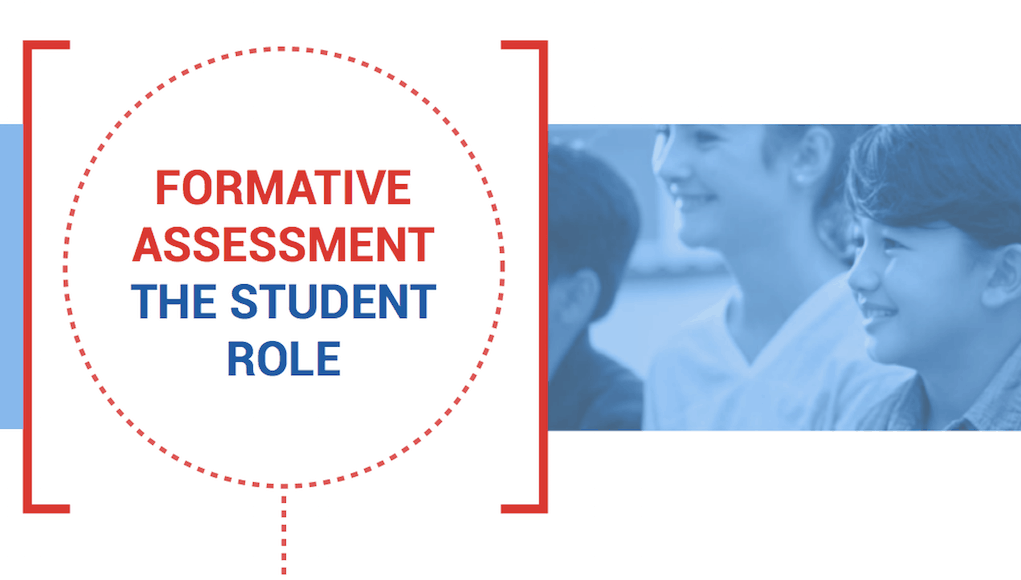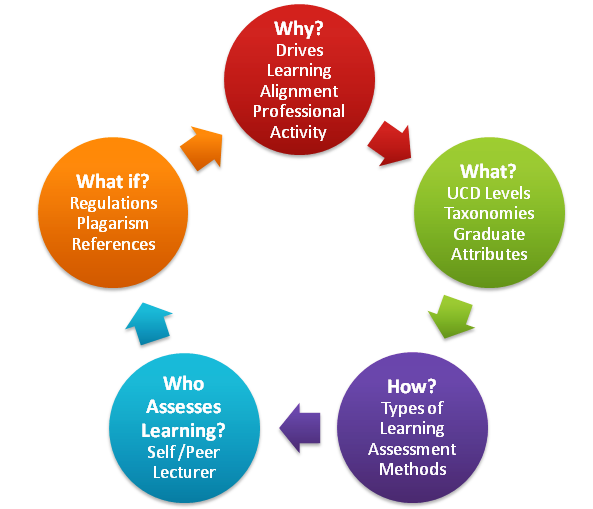Student Learning Assessment: Options and Resources (2nd Edition, 2007). Defines direct versus indirect methods of assessment with examples Understanding MSCHE Expectations for Assessment Linda Suskie, Vice President, Middle States Commission on Higher Education powerpoint presentation delivered at the November 2010 Self-Study Institute. Assessment Academy Jackson College has been accepted into the Higher Learning Commission’s Assessment Academy beginning Fall 2018. The Academies are programs aimed at assisting HLC-accredited institutions to define, develop and implement comprehensive strategies for institutional improvement.
Assessment of Student Learning
Across Northwestern, people are leading important and significant assessment efforts in areas such as program review, student affairs, enrollment management, budget and financial planning, and career services. In addition, the Office of the Provost is leading a University-wide initiative to facilitate assessment of student learning outcomes. The University Assessment/Accreditation Council has been instrumental in developing Northwestern’s institutional assessment strategy and in advising on matters related to student learning outcomes assessment.
Among our main goals is to make available a broad set of tools, best practices, and methodologies related to student learning assessment for faculty and staff to readily utilize. The recently launched Assessment of Student Learning website by the Searle Center for Advancing Learning and Teaching showcases assessment efforts across Northwestern and provides Northwestern faculty and staff with useful resources and tools for their own assessments of student learning. The site also outlines the purposes and strategy that guide Northwestern's assessment efforts, presents the assessment process, and provides links to other campus resources.
Educator and scholar Rick DuFour once defined the core mission of education as ensuring that students learn, rather than merely being taught. This raises the questions of what students should learn.
Strategic Framework for Assessment
The assessment of learning at Northwestern is (and will continue to be) a school- and division-based effort strongly supported across the University by the senior administration. The Office of the Provost in collaboration with the Assessment/Accreditation Council has facilitated the development of an institutional assessment strategy that respects the diverse methods and approaches to assessment that can be effectively utilized in a complex university. In 2015–16, the Student Learning Assessment Subcommittee of the Assessment/Accreditation Council developed a strategic framework for assessment (NetID login required) within Northwestern’s decentralized model to articulate an institutional strategy for student learning assessment. The framework respects that assessment of student learning is being performed widely across the University, across academic areas as well as units supporting co-curricular programming, and that schools and units are at different stages of assessment. The framework articulates a long-term vision for broadening student learning assessment over the next decade, identifies short-term strategic priorities, and establishes a three-year timeline with action steps that are realistic yet aspirational.
Learning, Teaching and Assessment Forum
This annual University-wide forum is hosted by the Office of the Provost, in collaboration with the University Assessment/Accreditation Council and the Searle Center for Advancing Learning and Teaching. This University-wide event is designed to:

- Provide faculty, doctoral students, postdocs, administrators and staff the opportunity to showcase their assessment initiatives at the class, department/program, school, and/or university levels;
- Share and highlight teaching, learning and assessment innovations, strategies, practices, and outcomes;
- Demonstrate the University’s assessment framework in practice; and
- Promote dialogue about assessment, its purpose, and its value for improving learning and teaching.
There are many exciting and innovative student learning outcomes assessment initiatives across Northwestern, and this Forum provides an opportunity to share more broadly. More information about the Assessment Forum, including proposal submissions and prior year presentations, is available on the forum website.
Contact
Bennett B. Goldberg, Director, Searle Center for Advancing Learning and Teaching; Assistant Provost for Learning and Teaching
627 Dartmouth Place, 203
Evanston, IL 60208
bennett.goldberg@northwestern.edu
Assessment of Student Learning Outcomes
Teaching requires assessment, i.e., the evaluation of student understanding in light of the goals of a lesson or a course. This is a broad definition, and indeed, there are many forms of assessment, and all of them involve student work. That work can be graded or ungraded. It can take a few minutes (as with the one-minute paper) or it can take weeks (as with the group project). It can ask students to demonstrate understanding or skills acquisition through writing, the creation of a product or presentation, or the ability to successfully accomplish some task. It can ask students to demonstrate their understanding as individuals or as members of a group.
Student learning outcomes articulate what a student should know or can do after completing a course or program. The assessment of student learning outcomes provides information that puts student learning at the forefront of academic planning processes. At the University of Maryland, the Provost’s Commission on Learning Outcomes Assessment provides the leadership and organizational procedures for our engagement in such assessment.

No matter their form, assessments should reflect—and be determined by—the learning goals of a lesson or a course. But linking goals to assessment can be tricky. If your goal is for students to understand a concept, do you mean that they should be able to recall facts? Summarize information? Apply information or predict consequences? Analyze or compare phenomena? Generate models? Evaluate and justify arguments? Perhaps you want your students to be able to demonstrate their understanding by doing a combination of these things. You should ask yourself whether or not your assessments are related to the goals of the lesson or the course, e.g., are the assessments measuring whether students have met the learning goals?
You might think of assessment as a multi-step process in which you:
- Formulate a clear and succinct learning goal (or goals) for your students.
- Articulate those learning goals to your students.
- Decide what your students should be able to do if they have met those learning goals.
- Develop an assessment instrument (a test, essay, project, etc.) and a scoring rubric.
- Administer the assessment instrument to your students.
- Evaluate your students’ performance on the assessment instrument.
- Assess your students’ mastery of the learning goals given their performance on the assessment instrument.
- Reflect on why students did or did not master the learning goals, and develop strategies to help them be as or more successful in the future.
Assessments can be powerful contexts for student learning. They can:
- understanding of a topic
- that think about their own learning
- know or have learned in your class or in previous courses
Campus Student Learning Outcomes
The Provost’s Commission on Learning Outcomes Assessment produced “learning goals that span multiple common expectations for all UM undergraduates, including critical thinking and research skills, written and oral communication, science and quantitative reasoning, information literacy, and technological fluency.” They are available at https://www.irpa.umd.edu/Assessment/LearningOutcomes.
The Provost’s Commission researched and formulated the following University-wide learning goals for UM students, which correspond to the essential elements of an undergraduate education as stated by Middle States Standard 12. These goals articulate the educational outcomes to which we as a University aspire for our graduates. The goals for these elements are not exhaustive, and not every student will necessarily master each goal. Finally, these goals must be understood as articulating with the goals and objectives of our General Education program and those of academic disciplines.
Critical Reasoning and Research Skills
Goal: University of Maryland undergraduates should learn and develop critical reasoning (https://www.irpa.umd.edu/Assessment/Examples/crit-think-rubric.doc) and research skills that they can apply successfully within a wide range and intersection of disciplines inside and outside of academia.


Written and Oral Communication
Goal: Using standard English, University of Maryland undergraduates will communicate clearly and effectively in writing and orally for different audiences and purposes.
Science and Quantitative Reasoning
Goal: University of Maryland undergraduates should understand and be able to apply basic scientific and mathematical reasoning to their research efforts and critical analyses.
Information Literacy Skills
Goal: University of Maryland undergraduates will learn and develop information literacy skills that they can successfully apply within a wide range and intersection of disciplines inside and outside academia.
Technology Fluency
Goal: University of Maryland undergraduates will be able to understand basic technologies and how these relate to their specific disciplines, and will be able to apply these technologies to their research and academic efforts.
Assessment Of Student Learning Pdf
See https://www.irpa.umd.edu/Assessment/LOA-ug.html for a detailed description of each learning goal.
